Have you ever wondered why it's so tough to influence change? Why is it, that with our very best intentions, we still find it difficult to make changes that we know would be good for us? It seems that it’s down to our inner elephant. I’ve borrowed the analogy used by University of Virginia psychologist Jonathan Haidt in his wonderful book The Happiness Hypothesis. Haidt says that our emotional side is an Elephant and our rational side is its Rider. Perched atop the Elephant, the Rider holds the reins and seems to be the leader. But the Rider’s control is precarious because the Rider is so small relative to the Elephant. Anytime the six-ton Elephant and the Rider disagree about which direction to go, the Rider is going to lose. He’s completely overmatched. Most of us are all too familiar with situations in which our Elephant overpowers our Rider You’ve experienced this if you’ve ever overeaten, slept in, said something you regretted, procrastinated, tried to quit smoking and failed, skipped the gym, gotten angry and lost your temper, refused to speak up in a meeting because you were fearful, and so on. Good thing no one is keeping score. Or are they? For those of you with a very large ego and oozing with pride, you are already disagreeing with me. Yes it is possible for the rider to have control over the elephant. No doubt you’ve seen circus elephants and even know that they are trained from young by being tied to a small stick. Later in life they are controlled with a nasty hook wielded by their trainer. I’ve met people who have been similarly trained from young. Their parents keep a very tight control and strict discipline. In later life they are highly disciplined and keep a tight lid on their emotions. Sure it happens. All of those I have met, are sad, lonely people. All of us have a constant tension between our Rider, and our Elephant The weakness of the Elephant, our emotional and instinctive side, is well known: It’s lazy and skittish, often looking for the quick payoff (one scoop of ice cream more) over the long-term payoff (being slim). When change efforts fail, it’s usually the Elephant’s fault, since the kinds of change we want typically involve short-term sacrifices for long-term payoffs. (We cut back on expenses today to yield a better balance sheet next year. We avoid ice cream today for a better body next year.) Changes often fail because the Rider simply can’t keep the Elephant on the road long enough to reach the destination. The rider’s intention to delay gratification is outmatched by the desire for the “just this once” payoff. The Elephant’s hunger for instant gratification is the opposite of the Rider’s strength, which is the ability to think long-term, to plan, to think beyond the moment (all those things that your pet can’t do). But what may surprise you is that the Elephant also has enormous strengths and that the Rider has crippling weaknesses. The Elephant isn’t always the bad guy. Emotion is the Elephant’s turf—love and compassion and sympathy and loyalty. That fierce instinct you have to protect your kids against harm—that’s the Elephant. That spine-stiffening you feel when you need to stand up for yourself—that’s the Elephant. And even more important if you’re contemplating a change, the Elephant is the one who gets things done. To make progress toward a goal, whether it’s noble or crass, requires the energy and drive of the Elephant. And this strength is the mirror image of the Rider’s great weakness: spinning his wheels. The Rider tends to overanalyze and overthink things. Chances are, you know people with Rider problems: your friend who can agonize for twenty minutes about what to eat for dinner; your colleague who can brainstorm about new ideas for hours but can’t ever seem to make a decision… The trouble is we think that the Rider is in control…
Joy@Work Podcast
Helping marketplace leaders #UnStuck their true potential to thrive in life and leadership to build a successful, sustainable business with collaborative, high performance teams and Joy@Work with practical, neuroscience-based AdvantEdge Guides and coaching.
Helping marketplace leaders #UnStuck their true potential to thrive in life and leadership to build a successful, sustainable business with collaborative, high performance teams and Joy@Work with practical, neuroscience-based AdvantEdge Guides and coaching.Listen on
Substack App
RSS Feed
Recent Episodes






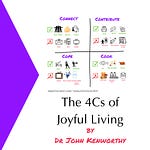



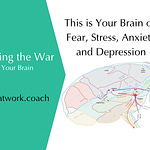
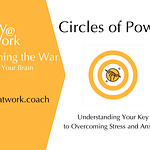
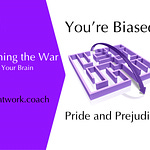
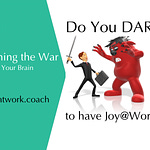
Share this post